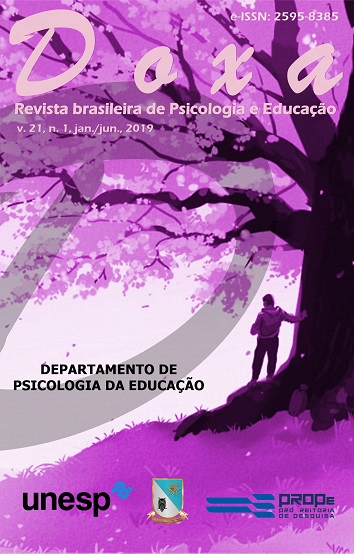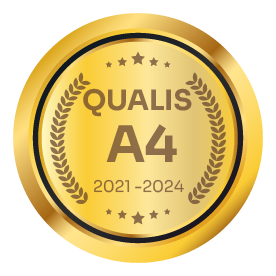What do they expect of us? From individualizing expectations to ethical-political practices in school and educational psychology
DOI:
https://doi.org/10.30715/doxa.v21i1.12048Keywords:
School and educational psychology, Socio-educational intervention, Good meeting.Abstract
The present article was developed based an experience in Basic Internship, connected to the curricular component "Socioeducational Planning and Interventions", in a Psychology course. The intervention, as a result of the theoretical and methodological study on the production of "good meetings" (NOVIKOFF; CAVALCANTI, 2015) regarding the perception of the Self and the Other, occurred favoring the communication and self-perception in a group of the 4th Year of the Elementary School of a Public School. We discuss in this article the expectations of the work of psychologists in schools - commonly associated with an individualizing institutional culture - and the challenges of establishing a modality profissional performance based on ethical-aesthetic and political principles. We conclude that what is expected of psychologists in school is the (re) production of clinical-therapeutic interventions, aimed at adjusting, adapting and normalizing children and their learning processes.Downloads
References
CONSELHO FEDERAL DE PSICOLOGIA. Referências técnicas para Atuação de Psicólogas(os) na Educação Básica. Brasília: CFP, 2013.
DEL PRETTE, Z. A. P.; DEL PRETTE, A. Desenvolvimento Interpessoal e educação escolar: o enfoque das habilidades sociais. Temas em Psicologia, São Carlos, v. 6, n. 3, p. 205-215, 1998. Disponível em: http://betara.ufscar.br:8080/pesquisa/rihs/armazenagem/pdf/artigos/del-prette-z.-a.-p.-del-prette-a.-1998-.-desenvolvimento-interpessoal-e-educacao-escolar-enfoque-das-habilidades-sociais/view. Acesso em: 4 dez. 2017.
FERNANDES, F. M. B.; MOREIRA, M. R. Considerações metodológicas sobre as possibilidades de aplicação da técnica de observação participante na Saúde Coletiva. Physis: Revista de Saúde Coletiva, v. 23, n. 2, p. 511-529, jun. 2013. FapUNIFESP (SciELO). DOI: http://dx.doi.org/10.1590/s0103-73312013000200010
FREIRE, P. Educação Como Prática da Liberdade. 34. ed. 2011.
GIONGO, C.; OLIVEIRA-MENEGOTTO, L. M. de. (Des) Enlaces da psicologia escolar na rede pública de ensino. Psicol. USP, São Paulo , v. 21, n. 4, p. 859-874, 2010. Disponível em: http://www.scielo.br/scielo.php?script=sci_arttext&pid=S0103-65642010000400011&lng=en&nrm=iso. Acesso em: 25 apr. 2017. DOI: http://dx.doi.org/10.1590/S0103-65642010000400011.
NOVIKOFF, C.; CAVALCANTI, M. A. de P. Pensar a potência dos afetos na e para a educação. Conjectura: Filos. Educ, Caxias do Sul, v. 20, n. 3, p. 88-107, set./dez. 2015. Disponível em: http://www.ucs.br/etc/revistas/index.php/conjectura/article/viewFile/3442/pdf_450. Acesso em: 7 maio 2017.
SOUZA, M. P. R. de et al. Atuação do Psicólogo na Educação: análise de publicações científicas brasileiras. Psicologia da Educação, São Paulo, n. 38, p. 123-138, 2014. 1. Sem. Disponível em: http://pepsic.bvsalud.org/pdf/psie/n38/n38a11.pdf. Acesso em: 25 abr. 2017.
VIANA, M. N. Interfaces entre a Psicologia e a educação: reflexões sobre a atuação em Psicologia escolar. In: FRANCISCHINI, R.; VIANA, M. N. (org.). Psicologia Escolar: que fazer é esse?. Brasília: CFP, 2016. p. 54-70.











